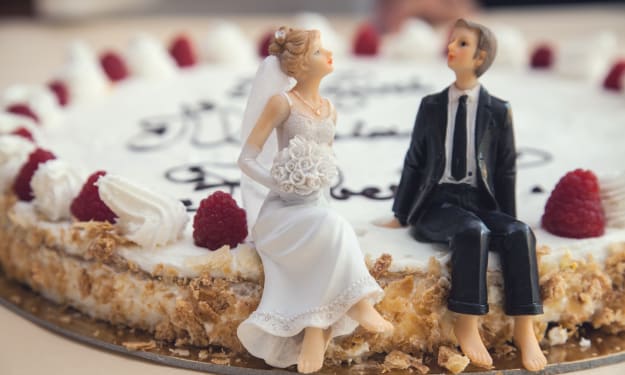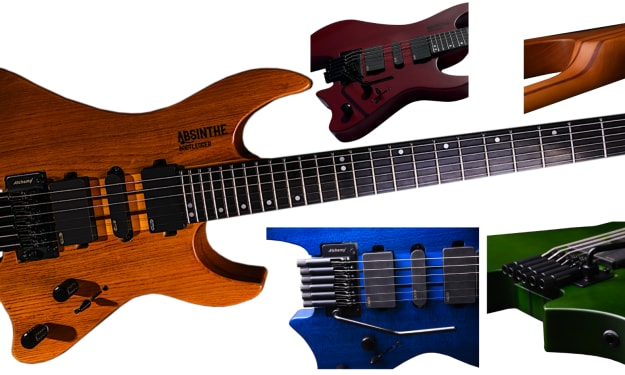
So you want to play piano. But before you can even begin to consider notes and rhythm and squiggly lines that give you migraines, you must first find an instrument to play on.
Naturally, you’ll have a lot of questions about acquiring a piano—should you buy one? Piano or keyboard? Where can you even buy pianos?
To help you, I've prepared a comprehensive guide to finding your dream instrument.
First things first… consider the following points:
- Is this something I am serious about? Or just like the rise and fall of the disturbingly alive artificial intelligence commonly known as “the furby,” is it just a phase?
- Do I want the short-term benefit? Or do I want to build a strong base for future learning?
- Is there enough space in my house?
- Can I afford this?
If you’re not sure whether you’ll stick at the piano…
… It’s probably best that you don’t actually buy an instrument. Pianos can be extremely expensive, costing upward of $4,000 (and that’s not even for a grand piano). It’s best to rent for at least a year before you buy.
Renting a piano will allow you to see how often you use it, and will give you time to decide whether piano is the right instrument for you.
Plans change, and you really don’t want to be on the wrong side of an ill-planned investment. Do you really want to be stuck playing an instrument that you don’t really like just because you’re financially obligated to? Think of the disappointment and shame you’ll feel every time you enter the room and see the piano that you no longer play. Talk about a guilt complex…
Plus, renting a piano allows you to try different models before settling on the one you will eventually buy. Renting a piano is a bit like dating. You wouldn’t marry the first person you met off the street, even if that person was Mark Ruffalo, so why should you commit to the first piano you encounter?
If you’re looking for a good rental service, check out Markson Pianos.
The piano vs keyboard debate…
A debate as old as time itself… (well at least since 1874 when the “Musical Telegraph” was first invented).
If you want to learn proper techniques…
… You should definitely consider a piano over a keyboard. Pianos have weighted keys, allowing you to build up finger strength, which will enable you to learn more challenging pieces later down the line.
Pianos feel alive. This is because when you touch them, there is a physical reaction within the piano. As you play a note, the key hits a hammer, which in turn hits the string, which thus creates the sound. This process creates a much richer sound than a keyboard could produce.
Remember that the sound of an acoustic piano carries more than the sound produced by a keyboard, so if you’re playing for a large audience it definitely has its advantages.
Plus, pianos are sexy! Imagine walking into a room where all the sofas are directed towards the piano, instead of the TV. Pianos ooze sophistication, whereas keyboards really don’t...
If you want a cheaper option…
… A keyboard is definitely for you.
Unlike pianos, keyboards require no maintenance, and don’t need to be regularly tuned. Also, keyboards aren’t affected by the environment or humidity.
Most keyboards allow you to adjust the volume and insert headphones. This means you can practise without disturbing everyone in the house.
While you forfeit an authentic piano sound, a keyboard allows you to produce a variety of other sounds, including but not limited to: ducks quacking, babies crying, and perhaps most disturbing of all the sound of a middle aged white man saying “yo.”
Keyboards can be good for orchestration as some include features that enable you to “play” (or rather use the sound of) another instrument altogether. Some allow you to record the music that you play so if you’re looking to record a song (but don’t have a lot of money to spend on renting a recording room), a keyboard is definitely a better option.
There’s also a matter of space. Keyboards take up a lot less space, and can be packed away easily. If you’re a student, it may be the more appropriate option.
Should I buy it new or second-hand?
Having an item in your house with a mysterious history can be quite exciting! Think about Aunt Jennie!
Plus, second-hand pianos are usually a lot cheaper than new ones!
That said, used pianos aren’t exactly timeless. Most pianos have a lifetime of about 60 years, which means you have to be careful about buying used pianos, especially if you don’t know the seller that well.
Make sure you watch out for the following things when inspecting the piano:
The keys
Are any of the keys discoloured? Broken? Dirty? Wobbly? Do they stick? Are they levelled?
The casing
What’s your first impression of the casework? Are there any loose parts? Is the hinge damaged? What does the surface look like? A dented or damaged casing could be a sign that the previous owners didn’t take proper care of the instrument.
What does the inside of the piano smell like? A pungent smell could be a sign of damp or mould!
The soundboard
The soundboard is the panel behind the strings (or underneath for grand pianos). Inspect it for any cracks, which could damage the tone of the piano.
Take note of where the piano has been stored, as radiators, fireplaces, or any area of the house where the temperature could fluctuate can lead to problems with tuning.
ALSO
Ask how often the piano was tuned. Anything less than twice a year will run the risk of you having to pay for special tuning, which could be quite expensive.
If the piano was regularly tuned, find out who tuned it! If it was done professionally, it should be fine, but if not, it may present issues in the future.
Lastly, remember the golden rule:
Try before you buy!
Do some notes ring even when you stop playing the note? Any rattles or buzzes when you play? Do the pedals work effectively? Do they squeak when you play them? Be aware of all these red flags when you first play it.
Never commit to a piano before you’ve had an opportunity to play it.
When you ultimately choose the piano, you will probably know which one is for you. As a wise man one said:
The piano chooses the player, Mr Potter. It’s not always clear why.
About the Creator
Will E
Making mistakes so you don't have to. Or perhaps I secretly enjoy making them. Still haven't worked that one out yet.






Comments
There are no comments for this story
Be the first to respond and start the conversation.